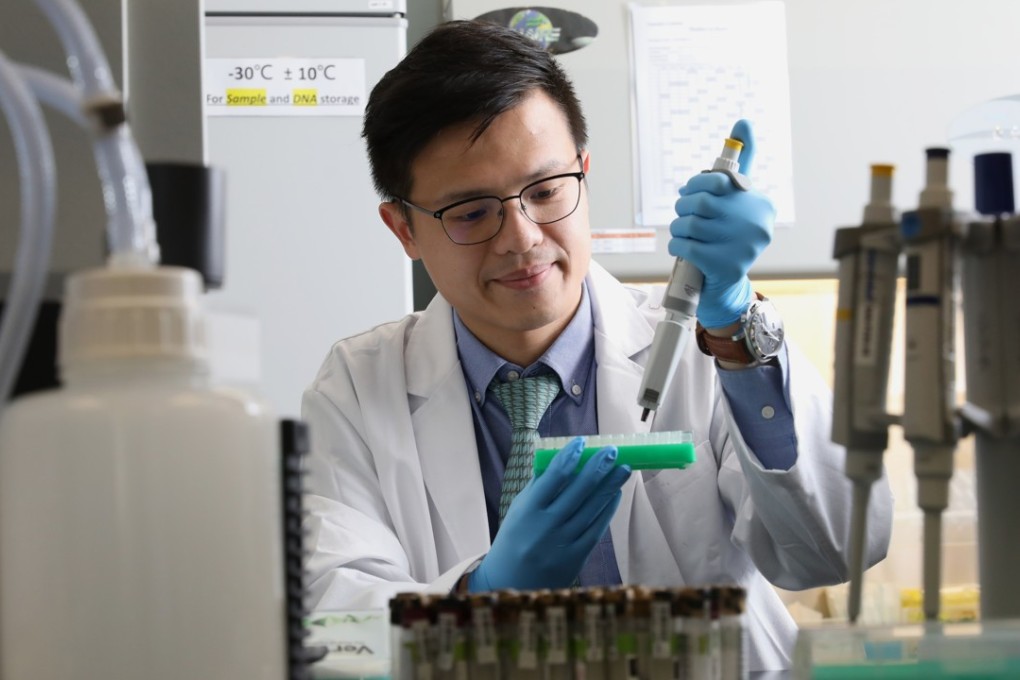Hong Kong could become a hub for genetics-based drugs discovery. Just one hitch – would Beijing stand in way?
- Beijing bans export of human genetics data, citing national security concerns
-
Without mainland data, envisioned database would be of limited use
Without mainland data, envisioned database would be of limited use

Hong Kong could become a regional centre for genetic data sharing that spurs discovery of breakthrough drugs. But the idea faces a huge roadblock: China’s export restrictions on its human genetics data.
Hong Kong Science and Technology Parks Corp. (HKSTP) is considering a proposal by Hong Kong-based cancers genetic screening services provider Sanomics of building a major database of genetic information at the planned Lok Ma Chau Loop Innovation and Technology Park – and is taking steps to get others on board, the South China Morning Post has learned. HKSTP itself has proposed to build a genetic database at the existing operating technology park in Sha Tin.
The park will be located next to the border of Hong Kong and Shenzhen on on which the land ownership had been under dispute for many years, until both sides agreed two years ago that Hong Kong actually owns the land that the two cities will use to co-develop a technology park for start-ups.
Hong Kong, though part of China, is a special administrative region given much autonomy. So, lawyers and other experts argue, it would need permission from Beijing to use genetic data about mainland Chinese in its database.
Beijing restricts the export of such data, stipulating it must be stored, processed and analysed in China because of national security concerns. Six Chinese and foreign organisations have been penalised by Beijing recently for “improper” collection, trading and export of Chinese genetic information.
“Hong Kong, if it can be set up as being ‘inside China’, then may satisfy both the Chinese government requirements and international firms’ preferences,” said Shanghai-based Helen Chen, head of L.E.K. Consulting’s China bio-pharmaceuticals and life sciences practice.